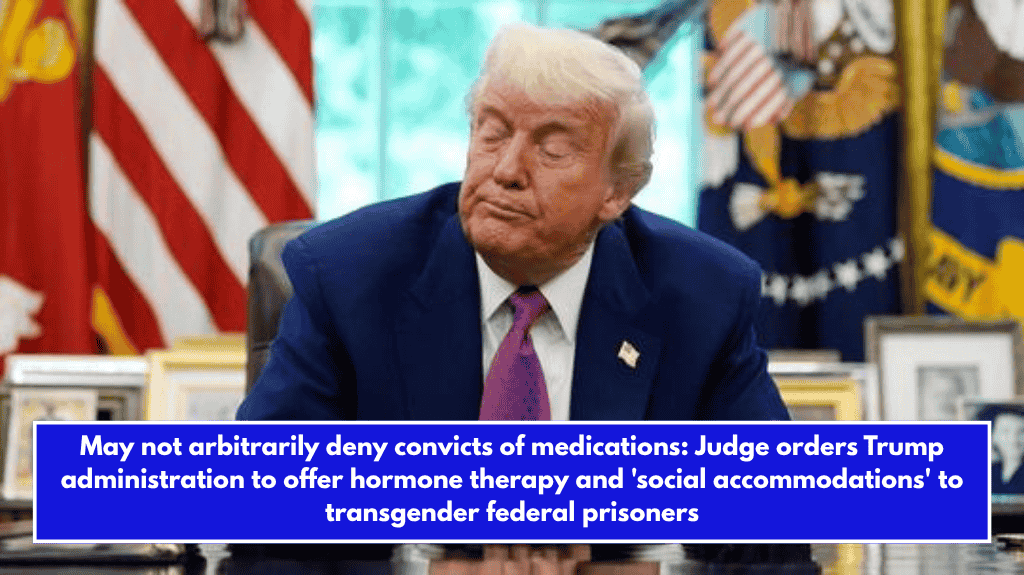A recent ruling from a federal court in Washington, D.C. has required the Trump administration to continue providing gender-affirming health care to transgender inmates under the custody of the Bureau of Prisons (BOP). This decision comes after a lengthy legal battle, where U.S. District Judge Royce C. Lamberth issued a preliminary injunction, preventing the government from enforcing policies that would limit or stop such care. The ruling is crucial for transgender inmates who rely on gender-affirming treatments like hormone therapy and social accommodations.
Background of the Case
The legal conflict started after President Donald Trump issued Executive Order 14168 on January 20, 2021. This order directed federal agencies to end funding for medical procedures, treatments, or drugs aimed at helping inmates transition to the opposite gender. As part of this, the BOP introduced two memos in February 2021, which blocked the use of federal funds for gender-affirming treatments like hormone therapy, binders, and other related items.
However, the court has now halted the implementation of these policies. The ruling came in response to a lawsuit filed by three transgender inmates who argued that the BOP’s actions were unlawful and harmful. Their case claimed that halting their access to necessary treatments caused unnecessary suffering and violated their constitutional rights.
Judge Lamberth’s Ruling
In his 36-page opinion, Judge Lamberth found that the BOP’s memos were not legally justified and did not meet the requirements set forth by the Administrative Procedure Act (APA). He argued that the BOP failed to provide adequate reasoning for their decision to cut off gender-affirming care and that simply referring to the executive order was not sufficient to justify their actions.
The judge emphasized that the treatments are essential for the mental health and well-being of transgender inmates, noting that gender dysphoria—an intense discomfort with one’s assigned gender—can cause severe psychological issues like anxiety, depression, and even suicidal thoughts if left untreated. Lamberth also highlighted that the BOP had not studied the long-term effects of halting these treatments on transgender inmates, making the decision even more concerning.
The Impact on Inmates
For the plaintiffs involved in the case, the disruption of gender-affirming care was not just an administrative inconvenience; it had real, harmful effects. One of the plaintiffs, Alishea Kingdom, had her hormone therapy stopped, and only after initiating the lawsuit did the BOP resume her treatment.
Another plaintiff faced the same issue, with their treatment being stopped and then reinstated temporarily before being threatened again with discontinuation. A third plaintiff was also informed that their hormone treatment would be stopped after their prescription ran out.
The judge ruled that these disruptions were likely to cause significant harm, which could be irreversible if not addressed. The BOP had also not provided guarantees that the treatments would continue for the more than 600 transgender inmates who rely on hormone therapy and other treatments.
The ruling by Judge Lamberth serves as a crucial reminder that any federal agency, including the Bureau of Prisons, must base its actions on solid reasoning and evidence, especially when it involves medical care that directly impacts people’s well-being.
The injunction will remain in place until the case is fully resolved or another court intervenes. The decision also opens the door for other transgender inmates with gender dysphoria to have their voices heard, ensuring they continue to receive the care they need.
Gender-affirming treatments are not just about personal choice; for many transgender people, including those incarcerated, they are necessary to prevent serious mental health issues. The court’s intervention ensures that these inmates will not have their care taken away without proper consideration and legal justification.














